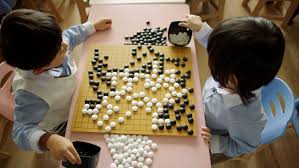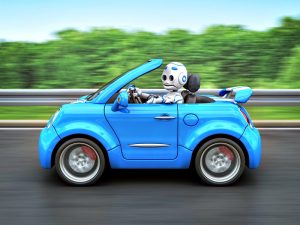<![CDATA[
– News from elsewhere covered by Quincy Quarry News with commentary added.
IKEA furniture and the limits of AI
Computers have already proved to be better than people at playing chess and diagnosing diseases.
And now a group of artificial intelligence researchers in Singapore have managed to teach industrial robots to assemble an IKEA chair and so for the first time uniting the worlds of Allen keys and Alan Turing.
Now that machines have mastered one of the most baffling ways of spending a Saturday afternoon, can it be long before AIs rise up and enslave human beings in the silicon mines?
Granted, humans have had a good run. But given the most recent breakthroughs in robotics, has their time as masters of the planet Earth come to an end?
Truth be told, humans may have a bit more time and maybe even a lot more.
The research holds a serious message about the limitations of automation. Machines excel at abstract tasks that, to people, signify intelligence—complex board games, say, or differential calculus.
In short, most anything involving serious number-crunching sorts of calculations; especially those involving probabilities typical to table games such as chess.
But they struggle with physical jobs, such as navigating a cluttered room, which are so simple to humans that they hardly seem to count as intelligence at all.
The IKEAbots are a case in point.
It took a pair of them, pre-programmed by humans, more than twenty minutes to assemble a chair that a single average person could knock together in a fraction of the time.
Artificial Intelligence researchers call this Moravec’s paradox and they have known about it for decades.
So far it does not seem to be the sort of problem that could be cured with a bit more research.
Instead, it appears to be a fundamental truth: physical dexterity is computationally harder than playing Go.
Way harder.
That most humans do not grasp this is a profound aspect of evolution.
Natural selection has had billions of years to attack the problem of manipulating the physical world to the point where it now feels effortless.
Chess, by contrast, is less than 2,000 years old. People find it hard because their brains are not wired for it.
This is something to keep in mind when thinking about the much-hyped future of automation, especially as Artificial Intelligence moves out of the abstract world of data crunching into the real world of things that can be dropped on your foot.
For example, as well as most inauspiciously, last Friday, April the thirteen, Elon Musk, the head of the electric-car firm Tesla, said that the production problems which have dogged his company’s high-tech factory were partly the result of an over-reliance on robots and automation.
Yes, excessive automation at Tesla was a mistake. To be precise, my mistake. Humans are underrated.
— Elon Musk (@elonmusk) April 13, 2018Lots of jobs have physical aspects that robots struggle with mightily.
Lots of jobs have physical aspects that robots struggle with mightily.
While machines may soon be able to drive delivery vans, at least for now, they could well fail at carrying a parcel up a flight of slippery stairs, especially if the stairs are patrolled by a vigilant dog.
Today’s AI systems are limited in other ways, too.
They are pattern-recognition engines, trained on thousands of examples in the hope that the rules they infer will continue to apply in the wider world. But they apply those rules blindly, without a human-like understanding of what they are doing or the ability to improvise a solution on the spot.
Makers of self-driving cars, for instance, worry constantly about how their machines will perform in “edge cases” — complicated and unusual situations that cannot be foreseen during training.
Granted, in a perfect world, a lot of people currently driving would not be allowed anywhere near a driver’s seat – but for the most part most people are able to manage to react to potentially dangerous driving situations with relative success while also giving a one-fingered wave at the source of the problem.
At least as long as they are not also updating their Facebook status.
As such, calibrating excitement about Artificial Intelligence is tricky.
Researchers complain that great progress is quickly forgotten: as soon as a computer can do something, it ceases to count as “AI” – but those same researchers also tend to be more cautious about the future than many pundits.
There is no reason – in principle – why a computer could not one day do everything a human can and more.
But that will likely take at least decades.
Furniture assembly helps explain why.
In turn, the bane of many a male’s honey-do list will likely continue to ruin their free time for at least a while longer.
Source: IKEA furniture and the limits of AI
]]>
























QuincyQuarry.com
Quincy News, news about Quincy, MA - Breaking News - Opinion
No more posts